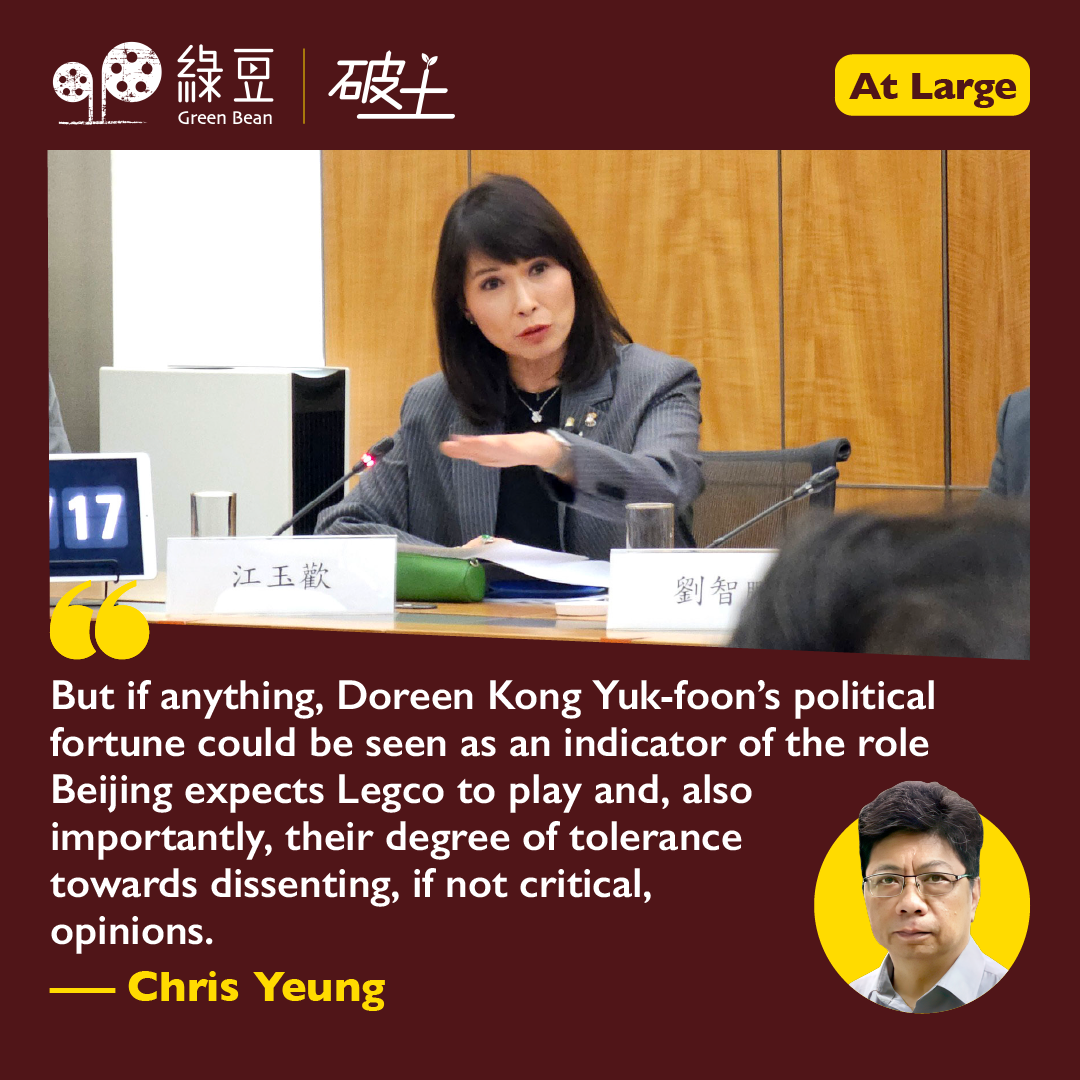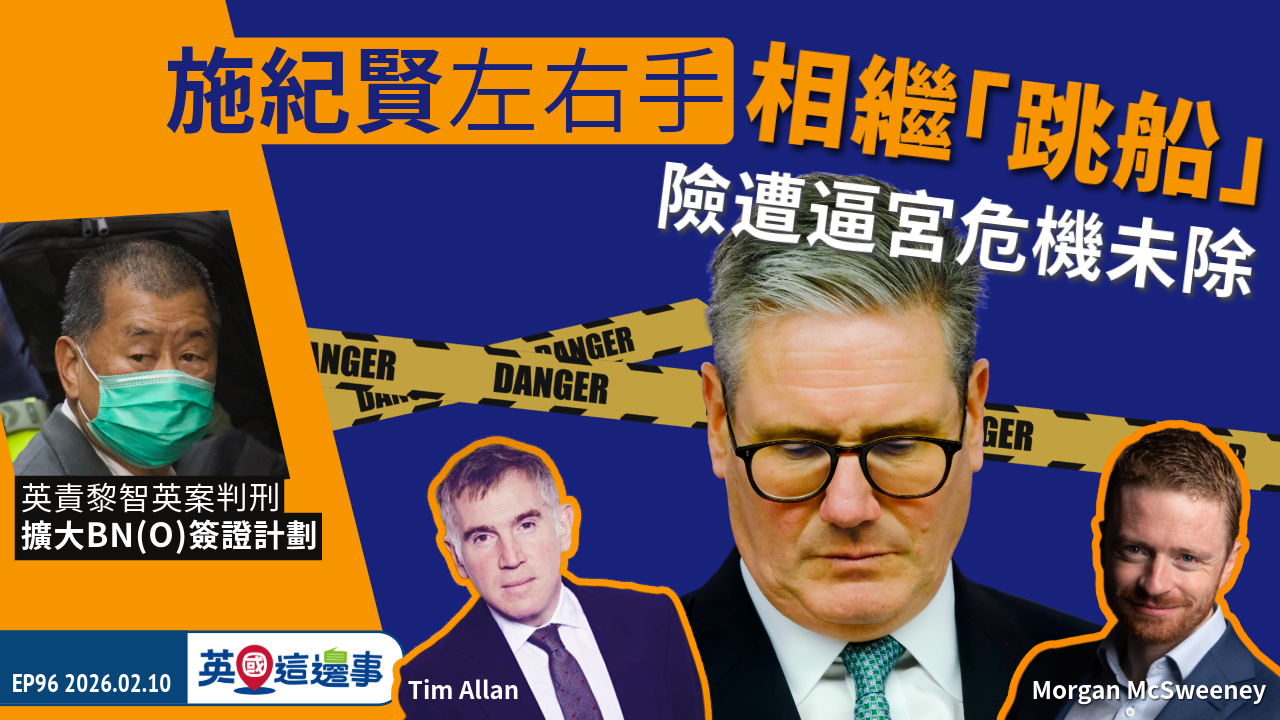Fate of Doreen Kong signals Beijing’s political strategy

Less than two months before nomination for the 2025 Legislative Council election is scheduled to kick off, lawmaker Doreen Kong Yuk-foon has dropped a hint that she may not seek re-election, causing a disquiet in the intriguingly quiet political scene.
Whether or not she will stay at the legislature for four more years is anybody’s guess. Realistically, that makes no practical difference in the balance of power in the new legislature. Kong, a maverick lawmaker, cannot possibly make a significant impact swinging government policies and decisions single-handedly as it has been since she was sworn in four years ago.
But if anything, her political fortune could be seen as an indicator of the role Beijing expects Legco to play and, also importantly, their degree of tolerance towards dissenting, if not critical, opinions.
Targets of criticism were livelihood issues
A politically lesser-known figure before the 2021 Legco election, Kong, a solicitor, was defeated by a now-disbanded Civic Party candidate in the 2015 district council election. Kong ran under the banner of the New People’s Party headed by Regina Ip. Kong quit the party in 2016.
With the pan-democrats disappearing from the new legislature and fading out in the society at large, Kong has emerged as one of the few in the all-patriots Legco who has taken a critical line, albeit in a mildly-worded and selective manner, on a list of government policies and mishandling of issues.
They include deficiencies in the government tendering system founded in a controversy over the purchase of drinking water for government employees, the official website of a body tasked with “trawling top talents” and a redevelopment plan of the Hung Hom waterfront.
Most of her targets of criticism were livelihood issues, which she has focused on in her work. Kong has rarely commented on political issues such as national security.
A question for Beijing
Seen from the perspective of the supporters of the pan-democracy camp, Kong is nowhere near to the role of opposition that democrats had played in the legislature since the 1990s until their departure from Legco in 2020.
By design or default, she has emerged as one of the few in the 90-member legislature who have at times voiced out dissonance, raising some eyebrows in the pro-establishment circle and society at large.
That said, she has not been singled out for attacks on the city’s pro-Beijing media, which has been seen as a mirror of the mainland authorities’ thinking on various issues of the city. As of today, there has been no indication that she is vulnerable to Beijing’s much-publicised move to replace the under-performing legislators with new blood in the December election.
Speculation is rife within the pro-establishment camp that one third of the incumbent legislators, or 30, will not be given a chance to seek re-election.
With the guessing game of the list of “Ins and Outs” heating up behind the scene, remarks in a recent post by Kong on social media have fuelled speculation that she is on the way out.
Looking back the past four years in her annual report, she said she has no feeling of loss, but a down-to-earth feeling of calmness. “Even if I’m not going to serve everyone as a Legislative Council member, I will stay on in this piece of land in a different way.” She told reporters she has not yet taken a decision on whether to seek re-election, saying that depends on whether voters and the people continue to support her.
Kong said it was a question of whether voters and the public think people like her would be needed in the present legislature and the political environment.
The question that Kong has raised is arguably aimed for the central authorities for them to think clearly whether people like Kong should play a role in the “patriots running Hong Kong” gameplan.
To put it directly, it is a question of whether Beijing is willing to accommodate dissonance, even for window-dressing purposes, in Legco. That cannot be taken for granted.
The fate of Kong and a couple of others including Paul Tse Wai-chun in the next legislature will shed some light not just on Beijing’s thinking on the width of the political spectrum in the “all-patriots” Legco, but also its propensity of easing its political control in the city.
Around this time four years ago, the question of whether Beijing would give green light to moderate democrats was the subject of much speculation. It was seen as an indicator of Beijing’s stance over political dissent. The composition of the 2021-elected legislature says it all.
This time moderate patriots including Kong and Paul Tse have become the testing cases. There has been no public discussion about the issue of democrats bidding for Legco seats. That could not be more ironic.
▌ [At Large] About the Author
Chris Yeung is a veteran journalist, a founder and chief writer of the now-disbanded CitizenNews; he now runs a daily news commentary channel on Youtube. He had formerly worked with the South China Morning Post and the Hong Kong Economic Journal.





